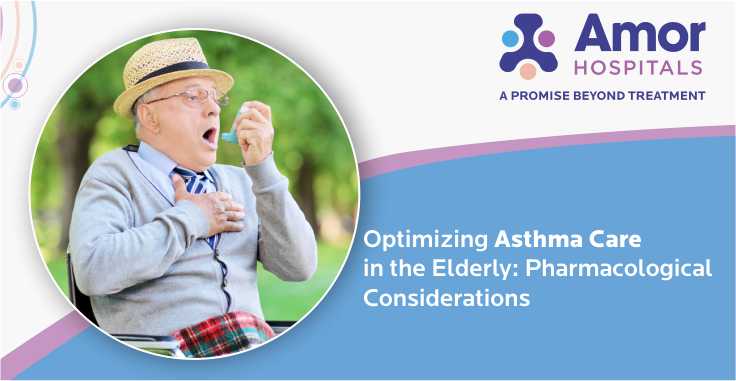
Optimizing Asthma Care in the Elderly: Pharmacological Considerations
Feb 12, 2024 by Dr V Harish kumarAsthma is a chronic respiratory condition characterized by airway inflammation and hyperresponsiveness, can present differently in older adults, necessitating a careful approach to drug therapy. Aging brings about physiological changes that impact the presentation and management of asthma. Elderly patients may exhibit symptoms such as cough, breathlessness, or fatigue rather than the classic wheezing seen in younger individuals. Comorbidities are also more common in this population, necessitating a careful balance between asthma treatment and the management of other medical conditions.
Understanding the pharmacokinetics of asthma medications in the elderly is important for achieving optimal therapeutic outcomes while minimizing adverse effects. It is crucial to consider the absorption profiles of oral asthma medications in elderly patients to ensure adequate therapeutic levels.
Asthma medications with lipophilic properties may have altered distributionin elderly patients potentially influencing their efficacy and side effect profile. Asthma medications metabolized by hepatic enzymes may require dosage adjustments to account for the changes in enzyme activity due to ageing.
Dose adjustments may be necessary for asthma drugs eliminated renally to prevent drug accumulation and toxicity.
Asthma medications, while effective in managing symptoms, can have side effects that may be more pronounced in elderly patients. Common side effects include systemic corticosteroid-related issues such as osteoporosis, hypertension, glucose intolerance skin thinning and bruising, risk of developing cataracts and glaucoma. Long-acting beta-agonists (LABAs) may pose cardiovascular
Dose adjustment is a critical aspect of asthma care in the elderly to achieve therapeutic efficacy while minimizing adverse effects Close monitoring of asthma symptoms, lung function, and potential side effects is crucial in the elderly. Individualized treatment plans that consider the patient's unique characteristics, including age-related pharmacokinetic changes, are essential for achieving the delicate balance between efficacy and safety.
By tailoring treatment strategies to the specific needs of elderly individuals with asthma, we can enhance their quality of life and promote optimal respiratory health in their later years.
